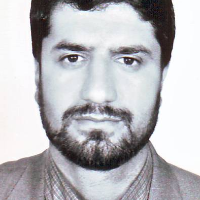Investigating internal organizational factors affecting the success of police patrols in preventing car theft.
Context and
Police patrols are the communication link between the people and the police, , behavior, treatment and performance of a police patrol officer. and other elements of the patrol unit judge the whole organization. The present study was conducted with the aim of investigating internal organizational factors affecting the success of police station patrols in preventing car theft in the second and fifth police stations of Fateb 1401.Research
according to the value of the correlation coefficient (r2=0.881), motivation level, (r2=0.732), training method, (r2=0.805) and organizational structure, there is a significant positive relationship with the success of patrols in preventing the crime of car theft. Organizational factors affecting the success of the police patrol in preventing theft based on the regression equation include:Y=641+310 (level of motivation) + (organizational structure)248.+(methodof education) 420.
According to the regression equation, the greatest effect of the patrols' success in preventing the crime of car theft includes: the variables of the training method, the level of motivation and the organizational structure, which means that by improving one unit of the model variables, respectively, the variables of the training method ( 0.420 units), the level of motivation (0.310 units) and organizational structure (0.248 units) will have the greatest effect on the success of patrols in preventing car theft crimes, and solutions were suggested for the success of police patrols in preventing car thefts in the second and fifth police stations of Fateb.
-
Prioritizing the Effective Indicators in the Formation of Drug Addiction among Adolescents from the Perspective of Experts
Sadruddin Etesami *,
Journal of Narcotics Science Reasearch, -
Analysis of the political discourse of Sardar Qassem Soleimani's will
Ruholamin Eivaz *, Majid Mohammadvali, Mohammadsajad Shirody,
Journal of Insight and Islamic Education,


